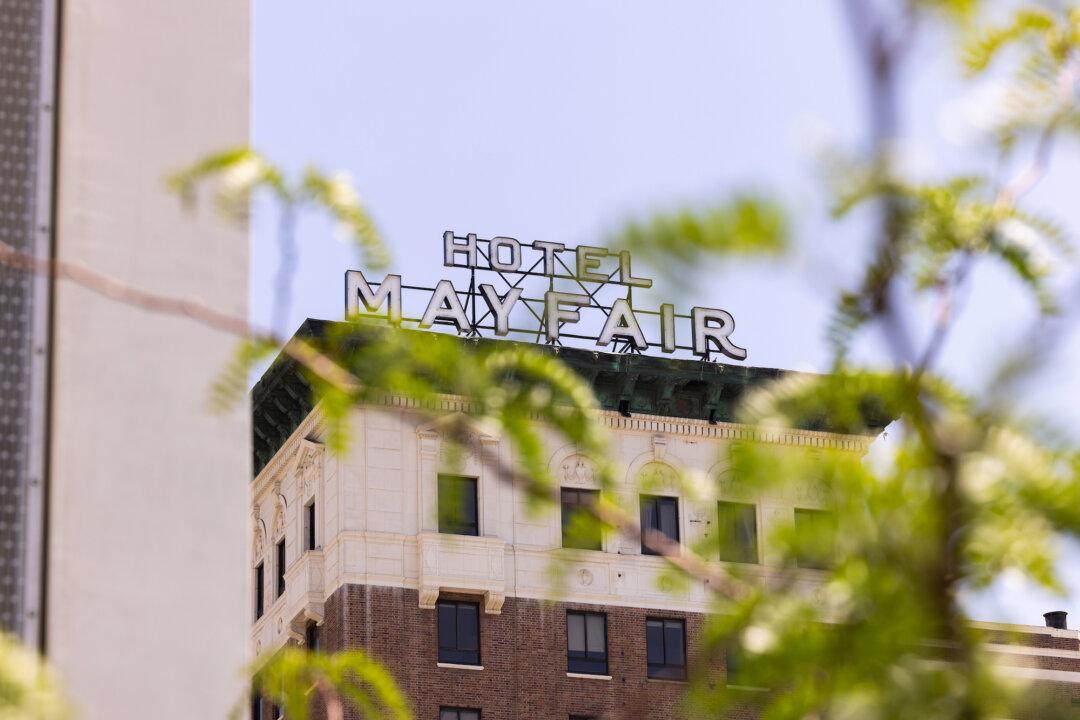Escrow was expected to close Aug. 31 on the city of Los Angeles’s $83 million purchase of the Mayfair Hotel in downtown that will provide temporary housing for homeless people.
The 294-room hotel is to become part of the city’s Inside Safe program to create interim lodging—leading to more permanent housing—and to bring more people inside, according to Mayor Karen Bass.





